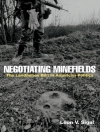In the heyday of American labor, the influence of local unions extended far beyond the workplace. Unions were embedded in tight-knit communities, touching nearly every aspect of the lives of members—mostly men—and their families and neighbors. They conveyed fundamental worldviews, making blue-collar unionists into loyal Democrats who saw the party as on the side of the working man. Today, unions play a much less significant role in American life. In industrial and formerly industrial Rust Belt towns, Republican-leaning groups and outlooks have burgeoned among the kinds of voters who once would have been part of union communities.
Lainey Newman and Theda Skocpol provide timely insight into the relationship between the decline of unions and the shift of working-class voters away from Democrats. Drawing on interviews, union newsletters, and ethnographic analysis, they pinpoint the significance of eroding local community ties and identities. Using western Pennsylvania as a case study, Newman and Skocpol argue that union members’ loyalty to Democratic candidates was as much a product of the group identity that unions fostered as it was a response to the Democratic Party’s economic policies. As the social world around organized labor dissipated, conservative institutions like gun clubs, megachurches, and other Republican-leaning groups took its place.
Rust Belt Union Blues sheds new light on why so many union members have dramatically changed their party politics. It makes a compelling case that Democrats are unlikely to rebuild credibility in places like western Pennsylvania unless they find new ways to weave themselves into the daily lives of workers and their families.
Mục lục
Preface
Acknowledgments
List of Figures and Tables
1. Understanding Social and Political Change in the Rust Belt
2. The Social Underpinnings of the “Union Man”
3. The Economic Breakdown of Big Labor from Without and Within
4. Union Membership Transformed
5. From Union Blue to Trump Red
6. On Union Decline and the Potential for Resurgence
Appendix A. Voting Patterns in Western Pennsylvania
Appendix B. Sample Interview Questions
Appendix C. Photographs in IBEW and USW Newsletters
Appendix D. Local Union Mentions in IBEW and USW Newsletters
Notes
Glossary
Index
Giới thiệu về tác giả
Lainey Newman is a J.D. candidate at Harvard Law School. She is a graduate of Harvard College and a native of Pittsburgh, Pennsylvania.Theda Skocpol is the Victor S. Thomas Professor of Government and Sociology at Harvard University. Her many books include The Tea Party and the Remaking of Republican Conservatism (with Vanessa Williamson); Upending American Politics (coedited with Caroline Tervo); and Diminished Democracy: From Membership to Management in American Civic Life.












